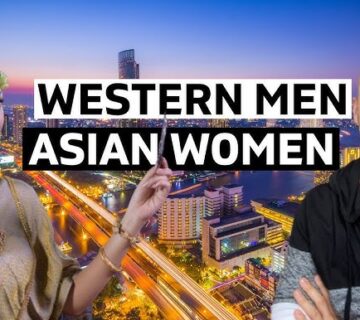Asia is a continent marked by incredible religious diversity, encompassing Buddhism, Hinduism, Islam, Christianity, Taoism, Sikhism, and many other faiths. These religions do not merely influence spiritual beliefs but play a profound role in shaping cultural norms, social structures, and interpersonal relationships—including dating and courtship customs.
In 2025, understanding the religious underpinnings of dating norms across various Asian cultures is essential for anyone interested in building respectful and meaningful relationships with Asian partners.
This article explores how religion influences dating practices and expectations in different Asian cultures, highlighting its impact on behavior, family involvement, gender roles, and long-term commitment.
The Role of Religion in Shaping Cultural Norms
Religion often provides a moral framework and social guidelines governing conduct, including how relationships are initiated and maintained.
In many Asian societies, religion intersects with traditions and law, influencing societal values about love, marriage, and family honor.
Buddhism and Dating Norms
Predominantly practiced in East Asia and Southeast Asia, Buddhism encourages values such as compassion, mindfulness, and harmony.
Modesty and Respect in Courtship
Buddhist cultures often value modesty and self-restraint in dating. Courting may be approached with seriousness and a focus on long-term commitment rather than casual encounters.
Showing respect to one’s partner, family, and community is emphasized, and dating outside religious or ethnic boundaries might be discouraged by traditional adherents.
Family Blessings and Matchmaking
While dating has become more accepted in many Buddhist-majority countries, parental approval and family involvement remain important. Matchmaking or introductions through family networks are common, helping ensure compatibility and cultural alignment.
Hinduism and Dating Traditions
Hinduism, largely practiced in South Asia, encompasses complex rituals and deeply rooted family values.
Arranged Marriages and Family Roles
In many Hindu communities, arranged marriages remain prevalent, though love marriages are increasingly accepted. Dating prior to marriage might be limited or discreet, with significant input from parents.
Respect for elders, adherence to caste considerations (although reforms exist), and religious observances influence choices and courtship behavior.
Religious Observances and Compatibility
Hindu dating often involves considering astrological compatibility and adherence to religious principles, ensuring spiritual harmony in the relationship.
Festivals and religious ceremonies provide social spaces for meeting and courtship within community contexts.
Islam and Dating Norms in Asian Cultures
Islam deeply influences dating and marriage customs among Muslims in South Asia, Southeast Asia, and Central Asia.
Emphasis on Marriage and Modesty
Islamic teachings prioritize marriage over casual dating. Interactions between unmarried men and women may be limited, emphasizing modesty and chastity.
Courtship is often supervised or occurs through family mediation, with a focus on maintaining religious obligations and ethical conduct.
Role of Family and Community
Family approval is paramount, with strict adherence to religious laws guiding relationship boundaries, matchmaking, and marital contracts.
Respecting religious rules about gender interaction shapes how couples communicate and build trust before marriage.
Christianity and Dating in Asian Contexts
Christianity has a significant presence in countries like the Philippines, parts of India, and other Asian regions.
Western Influence and Modern Dating
Christian communities often blend traditional religious values with more contemporary Western-style dating. Courtship here can resemble that seen in Western cultures, with dating, engagement, and marriage processes.
Church attendance, praying together, and shared faith are important components of Christian dating in Asia.
Emphasis on Chastity and Commitment
Many Christian Asian communities emphasize chastity before marriage and long-term commitment. These values influence dating behaviors and expectations significantly.
Other Religious and Cultural Influences
Sikhism
Among Sikh communities primarily in India, dating is balanced with family values and religious rites. Marriages often involve community participation and adherence to Sikh principles of equality and commitment.
Taoism and Confucianism
In Chinese culture, Taoist and Confucian values emphasize harmony, respect, and social order, influencing dating to focus on family consensus and social propriety.
Challenges and Opportunities in Interfaith Dating
Cross-religious relationships pose challenges such as conflicting beliefs, family expectations, and rituals.
Successful couples prioritize:
-
Open communication about beliefs and boundaries.
-
Mutual respect for each other’s practices.
-
Willingness to find common spiritual ground.
-
Planning respectful integration of traditions.
The Impact of Religion on Gender Roles in Dating
Religion often defines roles and expectations for men and women in dating contexts, influencing decision-making, expressions of affection, and family responsibilities.
Many Asian cultures influenced by religion uphold protective or nurturing roles for women while expecting men to be providers or leaders, though these roles are evolving with modernization.
The Intersection of Religion and Modernity
While religion remains a powerful force, global modernization and digital connectivity are reshaping dating norms in Asia.
Younger generations increasingly blend religious values with contemporary dating practices, negotiating tradition and personal freedom in unique ways.
A High-Authority Resource on Religion and Society
For a deep understanding of how religion shapes social norms across cultures, the Pew Research Center offers comprehensive studies:
https://www.pewforum.org [High-authority link]
Read More: The Importance of Open Communication in Cross-Cultural Asian Dating
Conclusion
Religion significantly shapes dating norms across Asian cultures, influencing courtship rituals, family involvement, gender roles, and relationship values. Whether through Buddhist emphasis on respect and harmony, Hindu arranged marriage traditions, Islamic modesty principles, or Christian commitment ideals, faith informs how Asian women and men approach love and partnership.
In 2025, intercultural dating involving Asian partners requires sensitivity to these religious influences, fostering respect and understanding that can pave the way for fulfilling, harmonious relationships.




[…] Read More: How Religion Influences Dating Norms Across Different Asian Cultures […]